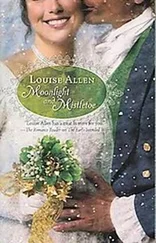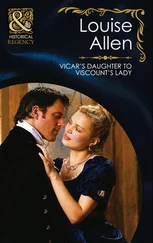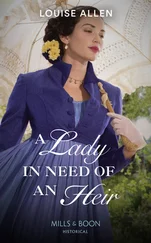Quin narrowed his eyes against the dusty sunlight. Mid-fifties, burly, salt-and-pepper brown hair: that was certainly his quarry, or one of them at least. Sir Philip Woodward, baronet, antiquarian and scholar, neglectful husband, selfish widower and father and, very possibly, traitor.
A flicker of movement out of the corner of his eye betrayed robes caught in the light breeze. Someone was approaching. Quin shifted his gaze to where the monumental columns of the temple of Koum Ombo rose from the enshrouding sand, dwarfing the mud-walled huts of the little village of fishermen and farmers beyond it. The person leading a donkey must be familiar with the area, for they spared no glance for the great ruins as they passed them by. It was a woman, he saw as she came closer, clad in the enveloping folds of a dark blue tob sebleh, but like most of the country women of Upper Egypt, unveiled. A servant—or the other person he had been sent to find?
Madame Valsac, widow of Capitaine Thierry Valsac of Napoleon’s Army of the East, daughter of Sir Philip Woodward and, maybe, another traitor. But unlike her father, whose safety was of little concern to the hard-faced men who had briefed Quin, Madame Valsac was to be extracted from Egypt and restored to the custody of her grandfather whether she liked it or not, and regardless of where her loyalties might lie.
That this might prove troublesome, hundreds of miles from the coast and the invading British army, in the path of France’s fearsome Mameluke allies who were believed to be heading north at that moment, and in the midst of one of Egypt’s periodic outbreaks of plague, had not concerned the gentlemen in Gibraltar. Quin was a diplomat who spoke French and Arabic and knew enough of antiquities to pass as one of the French savants, the scholars left by Napoleon to explore Egypt under the protection of his underpaid, diseased, poorly resourced army. That, so far as they were concerned, was sufficient qualification.
‘Classical antiquities, my lord,’ Quin had pointed out. ‘My knowledge of Egypt is virtually non-existent.’ Nor am I qualified in kidnapping females, he might have added, but did not.
‘Plenty of time to read it up on board ship between here and Alexandria,’ his unsympathetic superior had retorted. ‘Just remember, the Duke of St Osyth wants his granddaughter back, never mind if she’s taken an entire French regiment to her bed. Her father no one wants, but if he’s a traitor, then we need to know the ins and outs of it. Then you can dispose of him.’
‘I am not an assassin, my lord.’ Quin had said it with an edge missing from the protest about his lack of knowledge of Egypt. He might be ambitious, but he drew the line at murder.
‘Then introduce him to a hungry crocodile or lose him in the desert.’
Quin blinked to clear his vision and realised that the black dots swimming before his eyes were not flies.
The woman and the donkey were close now. She spoke as she passed the man sitting under the awning, but he made no reply. A servant, then.
She halted the donkey and began to heave the water jars from its back with the economical strength of someone accustomed to manual labour. She filled the donkey’s bucket, poured more water into the large storage jars and finally carried a pitcher to one of the open-sided shaded spaces facing the dune where Quin lay.
Through the insistent throbbing in his head it took him a minute to realise what she was about. The woman pulled the cotton folds of the tob sebleh over her head, removed the twisted cloth that tied up her hair and was unfastening the sash around her waist before he assimilated not only the colour of her hair—honey-brown, waving and most decidedly not Egyptian—but the fact that she was about to strip off her under-tunic and bathe.
He did not ogle women in their bath like some Peeping Tom, any more than he fed inconvenient baronets to the crocodiles. Quin rose to his feet, surprised at how unstable the shifting sands were. Now was the time to put his plan, such as it was, into effect.
One step down the slope and he knew it was not the surface that was making him so unsteady. Hell, I’m sick, he thought, getting his legs under precarious control as he half-slid, half-ran. He hit the flat ground at the foot with a force that jarred his spine and took six weaving steps towards the woman. She made no move and no sound, simply stood there, her hands arrested on the knot of her sash, staring at him.
Quin halted a yard from her. ‘Bonjour,’ he managed before his knees gave out and the ground came up to meet him. ‘Mada—’
* * *
Cleo regarded the sprawled, bareheaded figure clad in a dusty galabeeyah for a long moment, sighed, then raised her voice. ‘Father!’
‘I am working. Is it time to eat?’
‘No. There is a man here, unconscious.’
‘Leave him.’ Her father sounded irritated at the interruption and not in the slightest bit curious. But then this slumped heap of humanity was a person, not a ruined temple, or an inscription, let alone a fresco, so his lack of interest was only to be expected.
‘He will die and then he will stink,’ Cleo retorted. Only a direct threat to her parent’s comfort and convenience would shift him, she knew that very well.
There was a muttered curse, then her father appeared. He poked the recumbent figure with the toe of his boot. It shifted slightly. ‘Not dead. And not Egyptian. Frenchman, no doubt. Where do you want him?’
‘I do not want him at all, but on the other bed frame in my room, I suppose.’ Cleo pushed aside the hangings and stripped the spare sheets and her few clothes from the bed, leaving only the thin cotton padding over the crossed ropes. By the time she got back her father had the man under the armpits and was dragging him in, still face-down.
An unpleasant possibility struck her. ‘Are there swellings?’
‘What?’ Her father let the limp figure fall back with a thud.
Cleo winced. Now she’d have a bleeding, broken nose to deal with. ‘In his armpits. If he has the plague, there will be swellings.’
‘No. No fever either, he’s as dry as a bone.’ He went back to dragging the man inside. Cleo lifted the long legs when he reached the bed and they hefted the stranger up and on to his back. By some miracle the assertive nose was unbent.
‘Heatstroke, then,’ Cleo diagnosed. There was a dark dried mess on his left sleeve. ‘And a wound.’ Her father was already turning away. ‘I need to get these clothes off him.’
‘You were a married woman, you can manage.’ His voice floated back from behind the hangings. He would be lost in his correspondence again until she pushed food under his nose.
‘I might have been married,’ Cleo muttered, laying the back of her hand on the wide, hot forehead, ‘but I was not married to this one.’ She took off the man’s sandals, the easy part, then rolled and pushed the limp, heavy body and dragged at the cotton robe until it was over his head. The cord keeping up the thin cotton drawers snapped in the process, so she pulled those off too. There was a belt around his waist with a leather bag, heavy with coin. She set it aside, then stood back to survey the extent of the problem.
And it was extensive. Six foot, broad-shouldered, blond and lean with the look of a man who had recently lost whatever slight reserves of fat he might have had, leaving the muscles across his abdomen sculpted as though by the hands of a master carver. And he was very definitely male. The carver might have had the decency to provide a large fig leaf while he was at it...
Widow she might be, but she was certainly not sophisticated enough to gaze unmoved on a naked stranger. Not one who looked like this. Cleo fixed her gaze on his arm where a ragged wound was cut like a groove from shoulder to elbow, gave herself a little shake and concentrated on priorities.
Читать дальше












